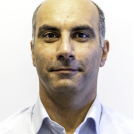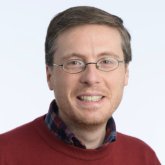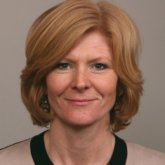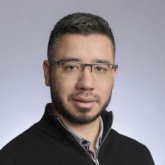PhD Candidate Enhancing large Language models with Kadaster knowledge graph for Multi-modal applications
The University of Twente wants to be an organisation that effectively deploys diversity, talents, and capabilities in the labour market for now and in the future. In the framework of our diversity and inclusiveness policy, we strongly stimulate people with a (work) disability to apply for this position.
The University of Twente is committed to providing a working environment where everyone is valued, respected, and supported to progress. Our priority is to ensure that no one is disadvantaged based on their ethnicity, gender, culture, disability, LGBTQ+ identities, family and caring responsibilities, age, or religion. We encourage everyone who shares these values to apply.
Kadaster and the UT have joined forces to operate at the forefront of knowledge about federated data; the goal is to advance the research field and develop methods and techniques to extract, combine, and analyse information from distributed data sources while accounting for the principles of ethical conduct, scientific integrity, and open science, to benefit the society.
To realise that goal, Kadaster and UT work together on a collaborative project under the umbrella of the Centre for Security and Digitalisation (CVD), a collaborative knowledge centre based in Apeldoorn, uniting educational institutions, businesses, and public organisations to address challenges in security and digital transformation. The project aims to work on trusted federative data infrastructures based on KG technology and simultaneously explore the potential of mutual augmentation of AI (particularly LLMs) and KG for land administration applications. The project will be conducted by a scientific team from Kadaster and UT, where five young researchers will join the team as EngD and/or PhD candidates, including the PhD Candidate employed through this call.
From the UT side, the Geo-Information Processing (GIP) department from the Faculty ITC and the Semantics, Cybersecurity & Services (SCS) department from the Faculty EEMCS will supervise the PhD and EngD candidates. The supervisory team will also include colleagues from the Kadaster Data Science. Artificial intelligence (AI) and knowledge graphs (KGs) have become ground-breaking technologies across numerous domains, enabling advanced decision-making, data integration, and knowledge extraction. AI, particularly large language models (LLMs), excels in natural language understanding and reasoning, while KGs provide structured, interpretable representations of data that enhance the contextual relevance and reliability of AI systems. Their combination paves the way for impactful innovations in various fields, including healthcare, urban planning, environmental monitoring, and public governance.
Research at the intersection of AI/LLMs and KGs is critical for addressing complex, data-driven challenges, especially in land administration, where reliable and interpretable data is paramount. Organisations like the Netherlands' Cadastre, Land Registry, and Mapping Agency (Kadaster) rely on structured data to maintain legal certainty and provide insights for spatial planning and property rights. Integrating KGs and LLMs can enhance the utility of Kadaster's datasets, enabling more advanced applications such as multi-modal data analysis (geospatial) reasoning and developing trustworthy AI tools for land administration.
You will have to conduct research at the intersection of LLMs and KG. The research will focus on enhancing LLMs with the Kadaster knowledge graph (KKG) for Multi-modal applications. The project focuses on improving LLMs' interpretability, applicability, and security in tackling land administration challenges based on KKG. The research contributes to a collaborative project between Kadaster and the University of Twente (UT) under the Centre for Safety and Digitalization (CVD) objectives (see Organization and Project section for more information).
You would have to develop techniques for LLM pre-training/fine-tuning/aligning using KKG, explore multi-modal data integration with KKG-enhanced LLMs, and address challenges such as hallucination mitigation and interpretability in land administration applications.
Information and application
For more information, you may contact Dr Mahdi Farnaghi (m.farnaghi@utwente.nl). You are also invited to visit our homepage.
For questions about working and living in the Netherlands, please consult the official website of the Netherlands Government or the website of the Expat Center East Netherlands.
Please submit your application before February 3, 2025, including:
* A motivation letter (maximum two pages of A4) emphasizing why you would like to investigate this topic and what you bring to the team (including a summary of your qualifications).
* Curriculum Vitae (including publications list, previous work experiences and education, and any published work such as software repositories or articles and the names and contact information of at least two references).
* Digital copy of the (MSc) thesis submitted for your degree and copies of academic transcripts.
* TOEFL/IELTS scores (if applicable).
First round interviews will occur in the week of 17-21 February 2025, with potential second-round interviews (if needed).
About the department
GIP-department
The GIP department at the UT's Faculty of Geo-Information Science and Earth Observation (ITC) focuses on creating actionable geo-information for diverse stakeholders. GIP addresses critical societal challenges by designing methods to process heterogeneous spatio-temporal data and developing open geo-information solutions. Their interdisciplinary approach combines Geographic Information Science, Remote Sensing, Computer Science, and Digital Humanities, emphasising co-creation with domain experts to ensure societal relevance and scientific validity.
SCS-department
The SCS department at UT's Faculty of Electrical Engineering, Mathematics, and Computer Science (EEMCS) advances semantic modelling, cybersecurity, and service design to enable meaningful computing within trusted digital environments. Their research focuses on ontology-driven conceptual modelling, FAIR data stewardship, and model-driven system/service engineering, dealing with data-driven services that understand the context and respond to changing situations. The SCS group develops ontologies and service composition frameworks to achieve semantic interoperability and meaningful enterprise services. To safeguard these services, they create automated methodologies for system analysis, threat detection, and mitigation alongside privacy-enhancing technologies and data protection techniques. Collaborating with industry, academia, and government, the SCS group applies its research across sectors like healthcare, agriculture, logistics, emergency management, smart cities, and manufacturing, addressing complex societal challenges through an interdisciplinary approach.
Kadaster
Kadaster collects and registers administrative and spatial data on property, rights, and assets such as ships, aircraft, and telecom networks, ensuring legal certainty. As the responsible body for national mapping, maintaining the national reference coordinate system, and advising on land use and spatial data infrastructures, Kadaster provides information primarily through online services to civil-law notaries, local authorities, businesses, financial institutions, and individuals. As the custodian of the Key Registers Cadastre and Topography, Kadaster performs its public tasks transparently and in service of society. For further information about Kadaster check:
* (https://www.kadaster.nl/)
* (https://labs.kadaster.nl/about/)
About the organisation
The Faculty of Geo-Information Science and Earth Observation (ITC) provides international postgraduate education, research and project services in the field of geo-information science and earth observation. Our mission is capacity development, where we apply, share and facilitate the effective use of geo-information and earth observation knowledge and tools for tackling global wicked problems. Our purpose is to enable our many partners around the world to track and trace the impact – and the shifting causes and frontiers – of today’s global challenges. Our vision is of a world in which researchers, educators, and students collaborate across disciplinary and geographic divides with governmental and non-governmental organisations, institutes, businesses, and local populations to surmount today’s complex global challenges and to contribute to sustainable, fair, and digital societies.





